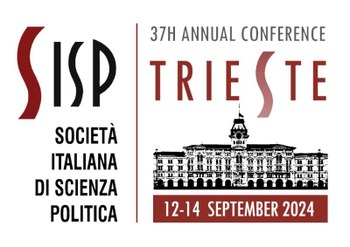Call for papers! Join the panels co-chaired by the BIT-ACT team at the 2024 SISP conference in Trieste
Submit your proposals on corruption, anti-corruption and data practices from the grassroots on the SISP website from April 15 to May 31, 2024
Published on 13 April 2024

The BIT-ACT team invites academics and practitioners working on topics related to corruption, anti-corruption, as well as on the use of data in grassroots mobilizations to contribute to three panels we are co-chairing at the 2024 SISP Conference, to be held on September 12-14 at the University of Trieste, Italy.
Proposals should be submitted from April 15 to May 31 on the SISP website.
The panel "Anti-Corruption and Integrity in the Digital Age" welcomes all theoretical and empirical contributions the approaches the use of technologies to fight corruption and promote integrity, in particular proposals related to:
- The use of emerging technologies, including AI, and big data to fight corruption and promote integrity
- Civic engagement and bottom-up anti-corruption technologies;
- Integrity policies and public administration in a datafied society;
- Government digitalization as an integrity and transparency strategy.
This panel is co-chaired by the BIT-ACT research fellow Fernanda Odilla and Francesco Merenda (University of Perugia). It has Professor Benedetto Ponti of the University of Perugia as the discussant. It is part of Section 6: Public Policy and Public Administration. The main goal is to encourage empirical research and theoretical frameworks to fully understand the nuances of anti-corruption and integrity efforts in different contexts, their likely outcomes, and limitations, especially when digital technologies are intertwined with these efforts.
The panel "Critical approaches to corruption and anti-corruption: Emergent imaginaries, discourses and definitions from around the globe" will be co-chaired by BIT-ACT research fellows Alessandra Lo Piccolo and Anwesha Chakraborty. This panel is also part of Section 6 of Public Policy and Public Administration.
Lo Piccolo's and Chakraborty's goal is to promote a greater understanding of national, regional, and local imaginaries of corruption with an emphasis on the sociocultural dimensions alongside the economic, political, environmental, technological, and legal ones. The panel invites both theoretical and empirical papers using a wide range of methodologies on the following broad themes:
- Critical reflections on international anti-corruption norms and practices
- Imaginaries and definitions of corruption and anti-corruption from street-level bureaucrats and other everyday political actor
- Context-specific appraisals of (anti)corruption definitions and practices
- Imaginaries and perceptions of (anti)corruption from Global South
The panel "Leveraging data for mobilizing people: interrogating data practices from the grassroots” will also be co-chaired by Alessandra Lo Piccolo and Anwesha Chakraborty. They invite contributions aimed at theoretically and empirically exploring:
- Grassroots actors and their resistance to digital surveillance/repression
- Counter-data, surveillance, and monitoring practices
- How data practices reshape the interactions between institutional and extra-institutional actors
- The impact of data practices on movement dynamics and outcomes
- Open data as leverage of engagement for civil society movements
- Data practices around the globe